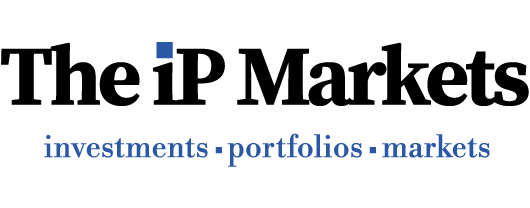“In a short period of time, demand has increased by hundreds of millions of won” Seoul apartment rental prices have risen for 8 consecutive months, How long will the upward trend last?
Apartment rentals in Seoul have been on the rise for 33 consecutive weeks since the third week of May last year This year, the jeonse price has increased due to a decrease in the number of tenants moving in and a slump in the sales market Jeonse rents are expected to continue to rise due to the relaxation of jeonse loan regulations and the strength of the monthly rent market

The increase in jeonse prices for apartments in Seoul has continued for 33 consecutive weeks. This atmosphere is appearing nationwide, with rental prices rising mainly in highly desirable areas such as complexes near train stations. The main reasons for the upward trend in jeonse prices include the stagnant sales market due to the aftermath of high interest rates, the expected shortage of new supply this year, and relaxed jeonse loan regulations. While there are predictions that the monthly rental market will continue to rise as the monthly rent market shows strength, there are also predictions that even the atmosphere of the sales market this year may change.
In the second week of January, apartment rents in Seoul are on the rise, with Nowon, Gangnam, and Eunpyeong ranking among the top
According to the Korea Real Estate Board on the 12th, in the second week of January (as of the 8th), the Seoul apartment rental price index increased by 0.08%, with the increase adjusted upward from the previous week (0.07%). It has been on the rise for 33 consecutive weeks since the third week of May last year (as of the 22nd).
By autonomous district, among the 14 districts in Gangbuk, Nowon-gu (0.16%) saw the largest increase in jeonse prices, mainly in the major complexes of Sanggye and Wolgye-dong. In Gangnam-gu (0.06%), the upward trend is maintained mainly in Apgujeong and Gaepo-dong, which are popular areas such as complexes near subway stations, and in Eunpyeong-gu (0.16%), rent prices also increased mainly in major complexes in Eungam-dong and Nokbeon-dong. In addition, Dongdaemun-gu (0.15%), Jungnang-gu (0.11%), and Dobong-gu (0.1%) also continued to see an upward trend in jeonse prices.
The upward trend in jeonse prices is occurring nationwide. During the same period, the national apartment rental price index rose 0.03% compared to the previous week, recording an upward trend for 24 consecutive weeks. By region, Daejeon rose the most at 0.1% compared to the previous week, followed by Jeonbuk (0.07%), North Chungcheong Province (0.06%), Seoul Metropolitan Area (0.05%), and Sejong (0.04%).
The main reason for the upward trend in jeonse prices is the depressed sales market atmosphere due to the aftermath of high interest rates. As housing prices slow down, consumers who were interested in buying or selling are instead flocking to jeonse. In fact, weekly apartment sales prices nationwide fell 0.05% compared to the previous week, continuing the downward trend for the 7th week, and apartment prices in Seoul also fell 0.04%, similar to the previous week. Regarding the fluctuations in apartment sales prices in Seoul, the Korea Real Estate Board said, “As the wait-and-see attitude to purchase is prolonged due to uncertain financial conditions and concerns about a slowdown in the real estate economy, downward adjustments in listing prices are gradually underway,” adding, “The downward trend is occurring as quick sale transactions appear in some preferred complexes as well.” “It continued,” he analyzed.
Analysis suggests that the lack of new supply is also driving up jeonse prices. The expected number of apartments in Seoul this year is 10,921, which is the lowest since 2000 when related statistics began to be compiled. This is less than one-third of the 32,795 households occupied last year. A real estate industry official said, “As concerns about a shortage of new housing remain despite the government’s supply measures, apartment rental prices in Seoul and the metropolitan area are bound to show an upward trend until the end of the year.” He added, “As concerns about rental fraud increase, demand for villa rentals shifts to demand for apartment rentals.” “We are doing it,” he analyzed.

Reversal is a thing of the past, and now there are even concerns about ‘the previous generation’
Experts agree that the decline in house prices and rise in jeonse this year will continue for the time being. Concerned about increased damage to tenants due to reverse rents, the government has made an exception to the existing 40% Debt Service Ratio (DSR) regulation and applied a 60% Debt Service Ratio (DTI) only to loans for the return of jeonse deposits since the end of July last year. It was allowed, and the explanation is that this increased the potential for an increase in the rental price.
The monthly rent market, which is showing strength in the aftermath of jeonse deposit mistrust due to jeonse fraud, is also considered a major reason for the future rise in jeonse prices. As a result of Real Estate R114’s recent analysis of apartment monthly rent (excluding rental deposits) reported to the Ministry of Land, Infrastructure and Transport’s actual transaction price system, the average monthly rent for apartments in Seoul traded last year was calculated to be 1.02 million won. This is an increase of 120,000 won (13.3%) from the average of 900,000 won in 2021 and 40,000 won more than the 980,000 won in 2022. In November last year, the nationwide officetel rental yield also recorded 5.01% per year, the highest since the start of the new sample survey (July 2020).
Furthermore, there are predictions that the rise in rental prices will push up house prices. This is because in an environment where jeonse prices are rising and new construction supply is low, there is a high possibility that actual demand will shift to sales of existing homes. The Bank of Korea also said in its monetary and credit policy report last month, “The government’s strengthening of household loan management and the increase in apartments for sale will exert downward pressure on sales prices,” adding, “If the jeonse price rises further next year due to a decrease in the number of move-ins in Seoul, the sales price will also increase.” “There is a possibility that it may act as upward pressure,” he explained.









 네이버계정으로 로그인하기
네이버계정으로 로그인하기
 카카오톡 계정으로 로그인하기
카카오톡 계정으로 로그인하기
